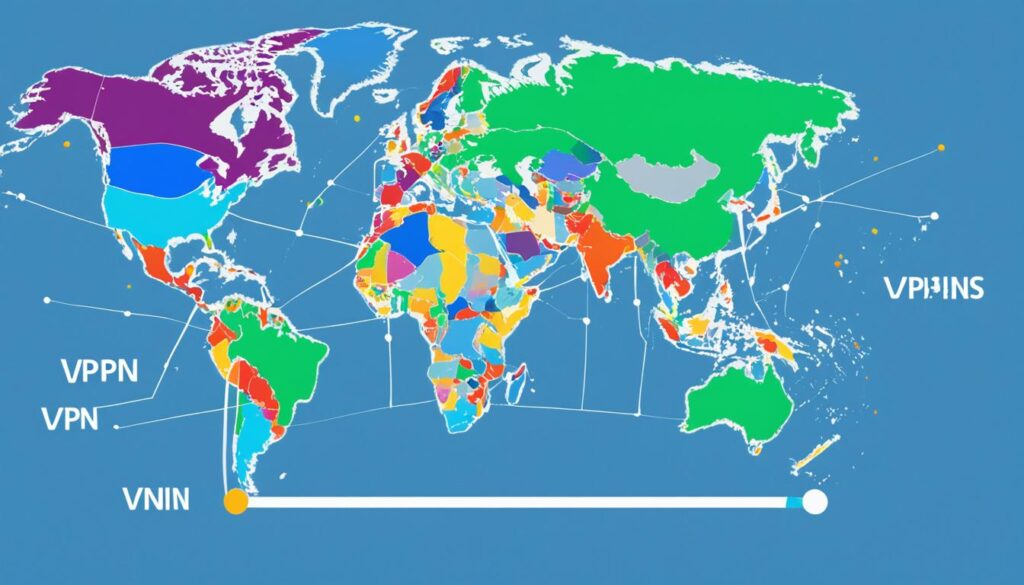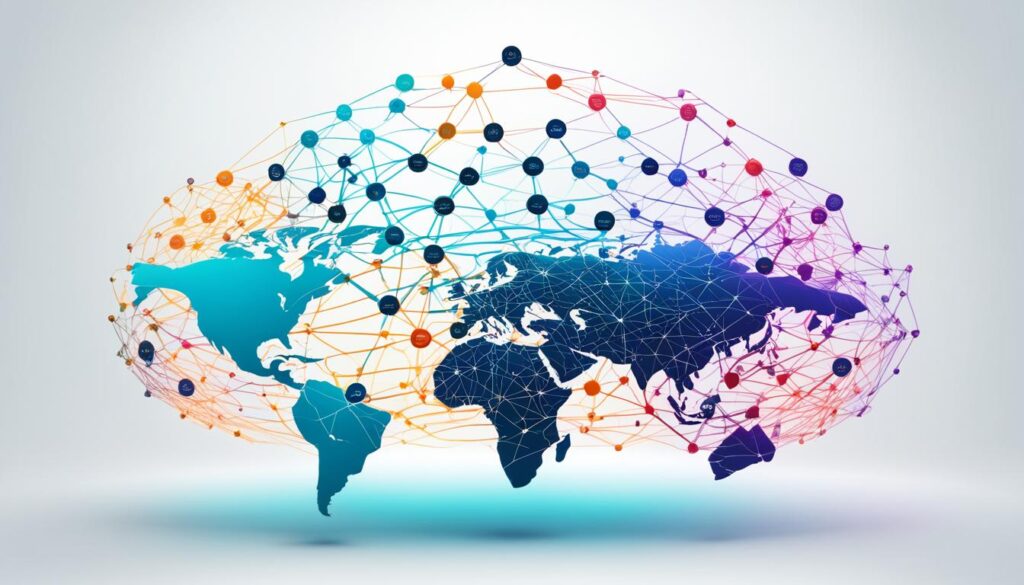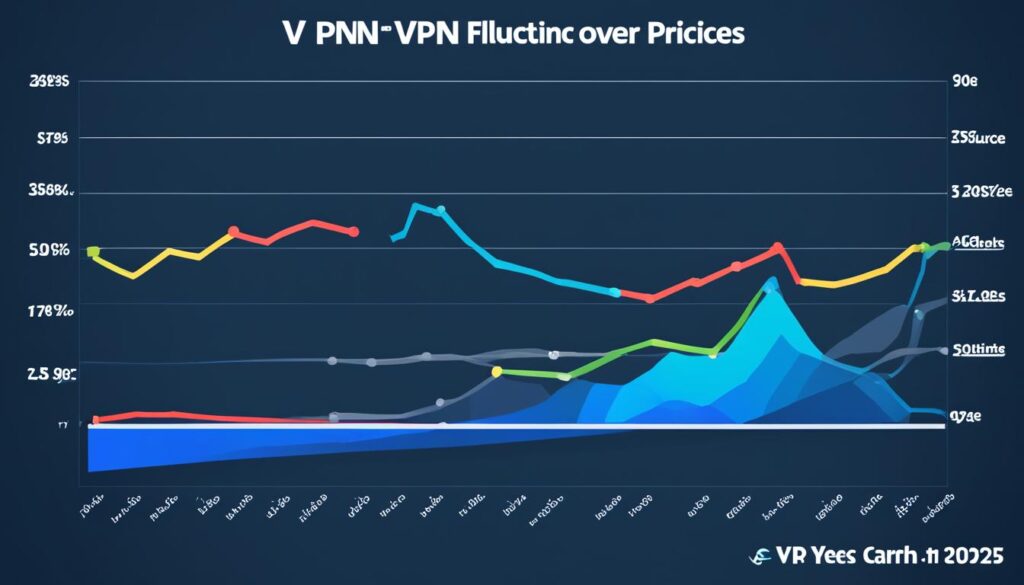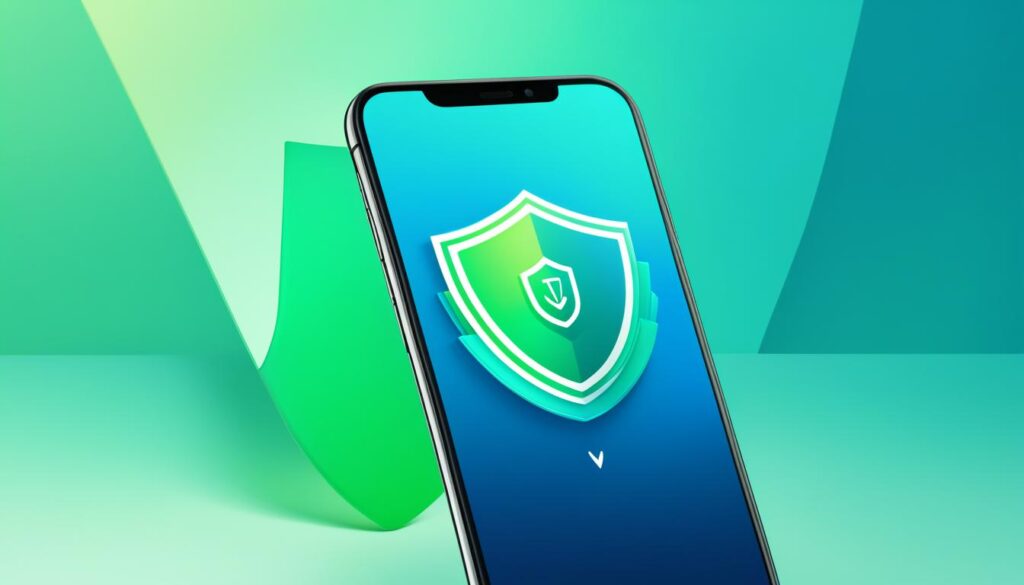The world is quickly relying more on digital tech, making virtual private networks (VPNs) very popular. People and companies use VPNs to guard their online actions and keep their data safe. In 2024, the VPN industry will change a lot because of new trends and stats.
More and more people are using VPNs for personal reasons than for work. They want to make their online activities more secure and watch streaming content that’s only available in certain places. They also use VPNs to get around geographic restrictions and internet censorship. The general public is getting more accustomed to VPNs. This, along with increasing concerns about cybersecurity, is driving the higher use of this type of online protection.
There are many VPN options now, including free choices and different paid plans, to meet everyone’s needs. While free VPNs might be attractive, they can have big security and privacy risks. Because of this, many users prefer paid VPNs. These can offer better features and protect their information with stronger encryption protocols.
VPN prices can vary a lot. The cost depends on things like how many servers the VPN provider has and where they are. Also, what advanced tools are available and how good their privacy guarantees are can influence the price. As the VPN world grows, there have been regional changes. Some places are now against VPNs, making it harder to use them there.
Key Takeaways
- VPN adoption is surging globally, with a shift towards personal usage over business applications.
- Individuals are using VPNs to enhance security, access streaming content, and overcome geographic restrictions.
- The VPN pricing landscape offers diverse options, including subscription-based models, freemium offerings, and tiered pricing structures.
- Factors like server network size, advanced features, and privacy guarantees influence VPN pricing strategies.
- Regional trends and geographic disparities have emerged, with some countries restricting or banning VPN usage.
The Rising Tide of VPN Adoption
The digital world is always changing. Because of this, more people are using VPNs to keep their data safe and work remotely. VPNs are becoming more popular, changing how we use the internet and think about security.
Awareness and Familiarity Reach New Heights
Many more American adults know about VPNs now. A recent study shows 95% are familiar with VPNs, up from 72% in 2020. This means more people understand the importance of using VPNs to stay safe online.
Growing Demand for Personal Data Protection
More and more people want to protect their personal data. A study found 46% of people use a VPN now, compared to 39% a year ago. This shows how much we value our privacy and security online.
Corporate Embrace of Remote Workforce Security
Remote work is more common, and companies need to keep their data safe. VPNs help companies and their employees work securely from anywhere. They ensure work remains productive and data secure, even outside the office.
Dissecting the VPN Pricing Landscape
VPN services vary greatly in price, from free to subscriptions that offer different features. By exploring the VPN Pricing Models, users can find the right plan for their needs and budget.
Subscription-Based Models: Monthly, Yearly, and Long-Term Commitments
Paid VPN services usually have plans that can be monthly, yearly, or longer. Subscribing can deliver more features, better security, and performance. Those ready for a bigger investment can save money with discounts.
Freemium Offerings: Weighing the Pros and Cons
Freemium VPNs are a good option for those on a budget. They provide basic protection and work for light internet use. However, free VPNs might not offer as much, like data caps and slower speeds.
Tiered Pricing: Customizing Security for Diverse Needs
Certain VPNs let users pick from different security and features with Tiered Pricing. This choice benefits both individuals and companies that need specific VPN capabilities. They can enhance their privacy, get faster connections, or use the VPN with more devices.
Factors Influencing VPN Pricing Strategies
VPN prices are shaped by various elements. The size and spread of a VPN provider’s server network, plus its advanced features and strong privacy, all have a big role.
Server Network Size and Global Coverage
VPNs with many servers around the world are often pricier. This is because it’s costly to keep a large network with diverse server locations. Users who need to connect globally look for such services with great coverage, speed, and reliability.
Advanced Features and Privacy Guarantees
VPNs with extra features usually cost more. Dedicated IP addresses, port forwarding, and obfuscation assist advanced users and businesses. For those who value online privacy, VPNs with solid no-logs policies might be preferred, even if they’re more expensive.
Encryption Strength and Security Protocols
Encryption level and security protocols also affect price. If a VPN uses top-grade encryption like AES-256 and secure protocols such as OpenVPN, it might be pricier. The cost covers the effort to keep such high-grade security up-to-date.
Regional Trends and Geographic Disparities
The demand for VPNs worldwide is growing fast. Certain areas stand out in their use of VPNs. The Middle East, for example, has seen a big increase. In countries like Qatar (70% use), the United Arab Emirates (62%), and Singapore (54%), many people are downloading VPNs.
Regions with Surging VPN Demand
In the Middle East and parts of Asia, the use of VPNs is booming. People and businesses are valuing their online privacy and security more than ever. The VPN industry is on the rise in these areas. This growth is likely because more people want to protect their online presence.
Countries Imposing Restrictions on VPN Usage
In spite of the growing demand worldwide, some countries are making it harder to use VPNs. Places like Egypt, Turkey, China, India, and Russia are putting up roadblocks. They’re not fully banning VPN use, but their steps make it tough.
Meanwhile, in countries like Belarus, North Korea, Iraq, and Turkmenistan, VPN use is banned. These bans are often part of bigger efforts to control the internet and online content.

VPN Industry Trends
The use of personal VPNs is growing fast. More people are using VPNs for personal reasons than for business tasks. A huge 77% of VPN users are using these services for Streaming Access and their personal online needs.
VPNs for Personal Use Outpace Business Applications
More people want a Personal VPN Use for better online Cybersecurity Threats and privacy. Understanding the risks their digital activity can bring, they seek VPNs. This helps keep their private info safe and stay secure online.
Streaming Content Access: A Key Driver for VPN Adoption
People also get VPNs to access locked streaming content and fun. A big 46% use VPNs to get around location blocks. This way, they can enjoy shows and movies from all over the globe.
Cybersecurity Threats Fuel the Need for Robust VPN Solutions
With cybercrimes on the rise, the need for strong VPNs is increasing for everyone. The internet’s dangers lead both people and companies to seek better VPNs. These technologies protect their online actions and keep their important data safe.
Examining VPN Provider Statistics
The need for virtual private networks (VPNs) is growing. It’s vital to look at top VPN providers’ key stats and features. They help us see how good and reliable these services are, from the number of servers they have to how they protect our privacy.
Global Server Footprint and No-Log Policies
The size and reach of a VPN provider’s server network are very important. Forbes Advisor found that 96% of VPN providers have servers on six continents, giving global coverage. They also said 91% of these providers have a no-log policy, showing they take user privacy seriously.
Simultaneous Device Support and Connection Speeds
Being able to use a VPN on more than one device at a time is key for many users. All VPN providers on Forbes Advisor’s list let users connect many devices at once. This means you can keep all your online devices secure with just one VPN account.
VPN Provider Statistic |
Percentage |
|---|---|
VPN providers with servers on 6 continents |
96% |
VPN providers with a strict no-logs policy |
91% |
VPN providers that support simultaneous device connections |
100% |
These VPN Provider Statistics show how dedicated the industry is. They focus on having wide server networks, strong privacy protections, and the ability to work across many devices. This meets the changing needs of VPN users, both for personal use and in business.

The Battle Between Paid and Free VPNs
VPNs have changed how we browse online significantly. Deciding between a paid VPN or a free VPN is making some people think hard. It’s especially important now as more people are worried about keeping their online data safe.
Security and Privacy Risks of Free VPNs
About 43% of VPN users go for the free versions. But, picking a free VPN could mean you’re risking your online safety. These free services might not promise to keep your data private, which can lead to your personal info being shared. There’s also a risk of picking up viruses or malware. Some free VPNs might not be as clean as they claim, adding harmful software or leading you to dangerous ads.
Performance Limitations and Data Caps
Free VPNs often can’t keep up with what their users want. More than half of their users say they’ve had trouble, like slow speeds. This happens because free VPNs might not have enough servers to handle all the traffic. If you’re hoping to watch shows online or do other activities that need lots of data, this can be a big headache.
Premium VPNs: Balancing Cost and Quality
Paid VPNs are likely a better choice if you want more from your VPN. They usually offer more features and better security. But, the cost can scare off some people. Even so, premium VPNs bring more to the table, like strong encryption, many servers to choose from, and help when you need it. Looking at what you get with a premium VPN against what you could miss with a free VPN helps you decide based on what matters most to you.
Future Projections and Market Growth
The VPN industry is set for big growth soon. This is because more people want to keep their online activities safe and private. Experts say that by 2024, as many as 10 million American adults might start using VPNs. This shows that people are understanding just how important VPN Market Growth and online privacy really are.
When we look ahead, the Revenue Projections for the whole VPN market, including consumers and businesses, look great. They think it will grow to $101.31 billion by 2030. This means we will see a lot of VPN Market Growth and new opportunities.
Emerging Technologies and VPN Integration
In the VPN world, new Emerging VPN Technologies will make things better for users and help VPNs become more popular. Technologies like artificial intelligence, machine learning, and blockchain will mix with VPNs. This will offer more secure, private, and high-performance services to users.
New tech and a better understanding of online privacy’s importance will push VPN Market Growth more. This will make VPNs even more necessary for personal and business uses in the future.
Consumer Perceptions and Barriers to Adoption
The VPN industry is growing, but not everyone is jumping on board. Many hesitate to use VPNs due to several reasons. This includes not knowing enough about them or thinking they are too hard to use.
Cost Concerns and Value Proposition
Cost plays a big role in why some people avoid VPNs. About 27% think VPNs are too costly. Showing the benefits, like added security and privacy, might change their minds.
Ease of Use and Setup Challenges
For others, VPNs seem too difficult to set up. About 20% feel they are too complicated. Making VPNs easier to use would help attract more users.
Trust in VPN Providers and Privacy Guarantees
Then there’s the issue of trust in VPN providers. People worry about their data being kept safe. By being clear about privacy policies and getting audited, VPNs can win more trust.
VPN Security Breaches and Vulnerabilities
VPNs help keep our online activities private and secure, yet they’re not perfect. Free VPNs have faced major security issues, which include the risk of data and identity theft. The rise in cybercrime has made it critical for us to find reliable VPN services.
Some studies have shown that certain VPN providers, mainly the free ones, are vulnerable. These vulnerabilities cause user data leaks, eroding the very privacy VPNs are meant to safeguard. It’s clear that with the increasing digital threats, we need better security checks for VPN providers.
When picking a VPN, it’s important to do your homework. Look into a provider’s history, how they encrypt data, and if they keep logs. Opting for a reliable, paid VPN service lessens the chance of falling victim to VPN vulnerabilities and keeps your private activities safe.
Key Factors |
Importance in Addressing VPN Security Breaches and Vulnerabilities |
|---|---|
Encryption Strength |
Robust encryption protocols, such as AES-256, are essential in protecting user data from VPN security breaches. |
No-Log Policies |
Strict no-log policies, verified by independent audits, help ensure that user activity is not recorded and potentially compromised in the event of a VPN vulnerability. |
Server Infrastructure |
A large, globally distributed network of VPN servers with robust security measures can help mitigate the impact of security breaches and protect user data. |
Transparency and Audits |
Regular, independent security audits and transparency regarding VPN provider practices can instill trust in users and help identify potential vulnerabilities. |
As the need for VPNs grows, choosing wisely becomes more important. Being aware of VPN security breaches and vulnerabilities empowers users to defend their online lives. Stay informed and vigilant against the digital world’s ongoing threats.
Regulatory Landscape and Legal Implications
VPNs are becoming more popular. But, it’s key to know the rules and legal effects of using VPNs. They are great for keeping our online activities private and secure. However, using them can run into issues with laws about data privacy and net neutrality.
Data Privacy Laws and VPN Compliance
In some places like Egypt, Turkey, China, India, and Russia, using VPNs might not be easy. Even if not clearly illegal, these places worry about data safety. They also fear VPNs might help people get around online rules. This means users everywhere need to check if their VPN follows data privacy laws in their area.
Net Neutrality and VPN Usage
Net neutrality is the idea that all online traffic should be treated the same. This can affect VPN use too. In countries like Belarus, North Korea, Iraq, and Turkmenistan, VPNs are not allowed. This is to keep internet use under tight control. Using VPNs in such places can lead to legal trouble.



